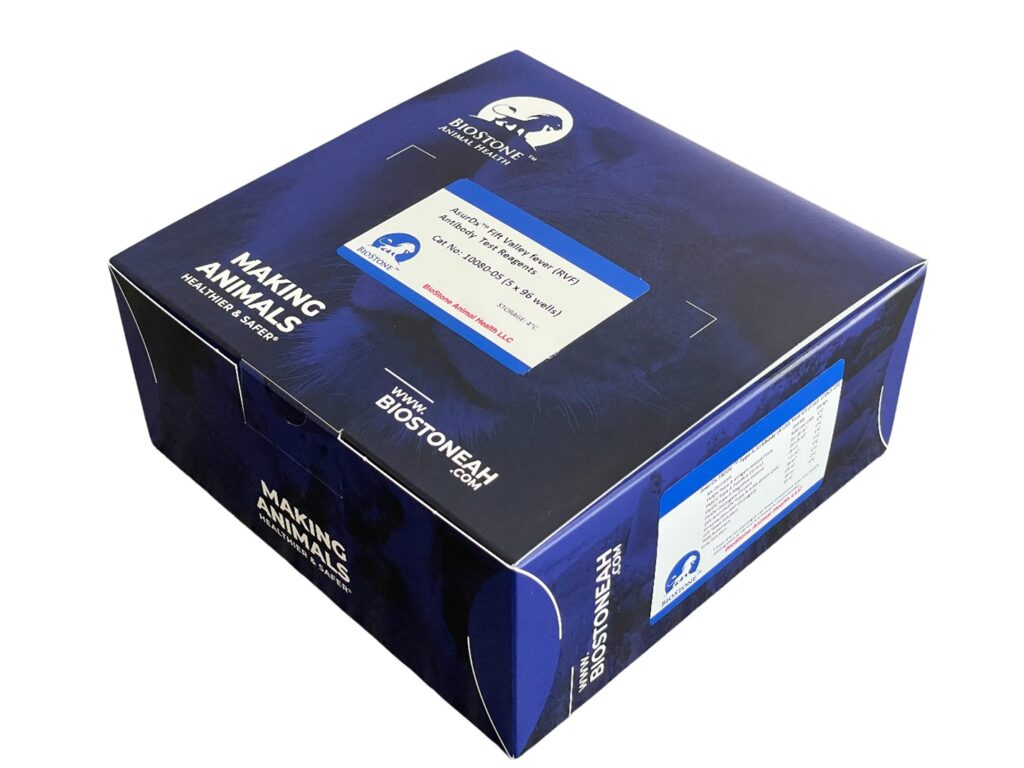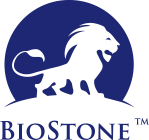AsurDx™ Rift Valley Fever (RVF) Antibody Test
The AsurDxTM Rift Valley fever (RVF)Antibody Test Kit is designed for the detection of antibodies specific to Rift Valley fever (RVF)in bovine, goat, sheep and camel sera and plasma.

Feature
- Detects RVF IgG antibodies in serum/plasma of cattle, goat, sheep and camel;
- Procedures last less than 75 minutes;
- Provides a simple, rapid, sensitive and cost-effective enzyme-based immunoassay (ELISA) screening method
*Availability/Distribution: Product is designed and developed by BioStone US Texas headquarter and manufactured/assembled by BioStone oversea subsidiaries or partners. Currently, the product is only available outside of the USA. Regulatory requirements vary by oversea countries; the product may not be available in your geographic area.
Specification
| Method | Competitive ELISA |
| Coated Antigen | RVF antigen-coated Plate |
| Incubation Time | 75 minutes |
| Storage | At least 12 months |
| Specificity | RVF IgG antibodies in serum/plasma of cattle, goat, sheep and camel |
Order Information
| Catalog Number | 10080-02 | 10080-05 |
| Plates | 2 plates | 5 plates |
| Reactions | 192 | 480 |
| Plate Format | 12 X 8-well strips | 12 X 8-well strips |
About Disease
RVF is a viral disease of humans and livestock that can cause mild to severe symptoms. The mild symptoms may include: fever, muscle pains, and headaches which often last for up to a week. The severe symptoms may include: loss of sight beginning three weeks after the infection, infections of the brain causing severe headaches and confusion, and bleeding together with liver problems which may occur within the first few days. Those who have bleeding have a chance of death as high as 50%.
The disease is caused by the RVF virus. Animals such as cows, sheep, goats, and camels may be affected. In these animals it is spread mostly by mosquitoes. RVF virus belongs to the Bunyavirales order. This is an order of enveloped negative single stranded RNA viruses. The virus’ 11.5 kb tripartite genome is composed of single-stranded RNA. As a Phlebovirus, it has an ambisense genome. Its L and M segments are negative-sense, but its S segment is ambisense. These three genome segments code for six major proteins: L protein (viral polymerase), the two glycoproteins G(N) and G(C), the nucleocapsid N protein, and the nonstructural NSs and NSm proteins.
